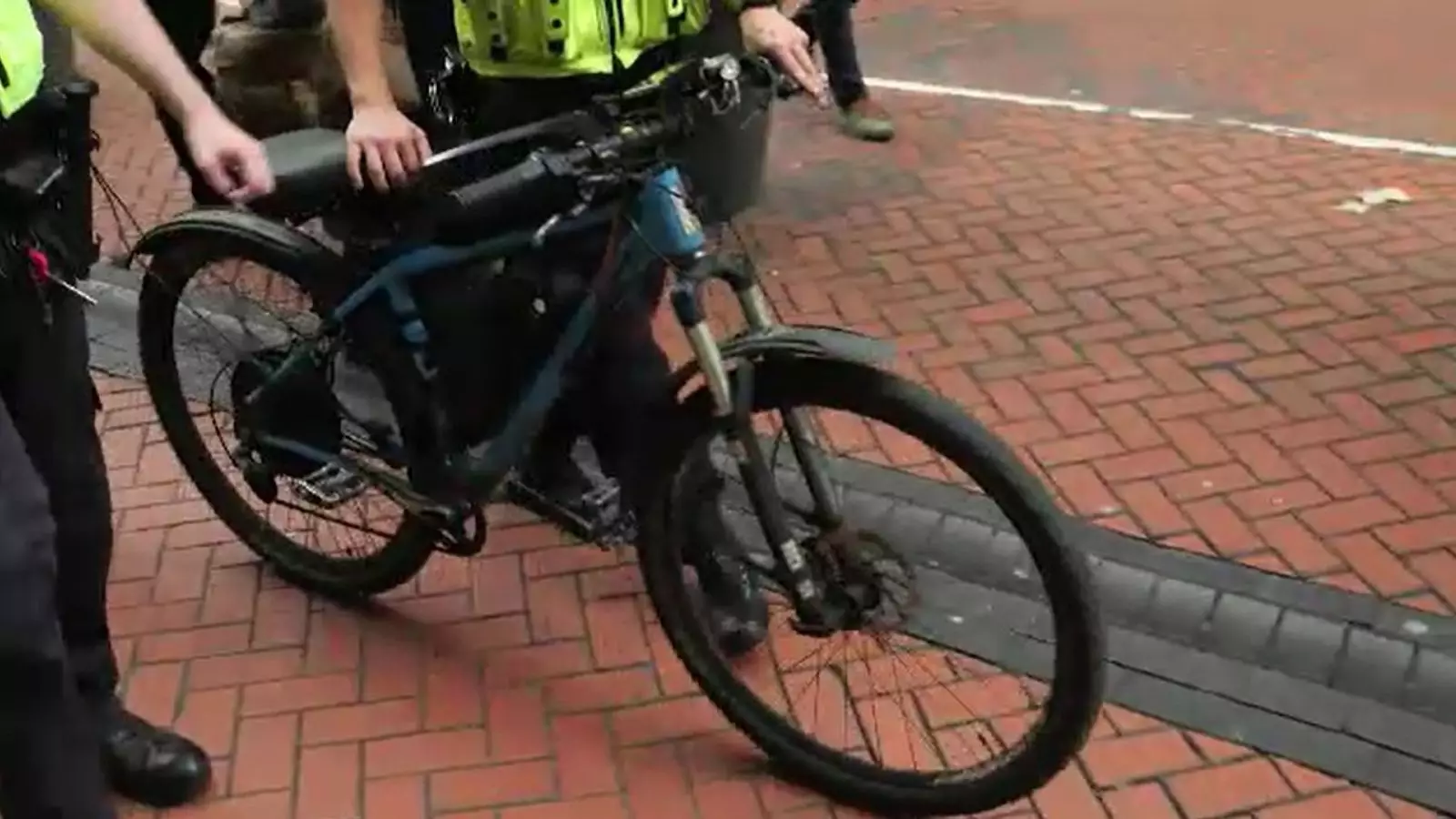In the bustling heart of Birmingham, amid the cacophony of shoppers and the relentless flow of city life, a silent menace lurks on two wheels. Illegally modified electric bikes have become more than just a means for quick delivery—they symbolize a stubborn disregard for safety and legality. These bikes, often rigged with oversized batteries and high-powered motors, threaten not only their riders but everyone around them, including pedestrians, children, and the elderly. The seemingly trivial act of tampering with e-bike regulations exposes a systemic failure: a government and corporate approach that underestimates the severity of this problem, risking a public safety crisis that demands urgent and comprehensive intervention.
Law Enforcement’s Brave but Limited Struggle Against a Growing Problem
West Midlands Police’s operation vividly illustrates the scale and gravity of the issue. Officers like PC Paige Gartlan risk their safety daily, confronting aggressive riders who often evade capture by fleeing or resisting. The scene of confiscated bikes—some running speeds over 50km/h—paints a stark picture of how these modifications bypass legal limits and engineering standards meant to protect the public. Yet, despite their efforts, the pace of confiscations signals a deeper problem: supply chains and user demand far outweigh enforcement capacity. The sight of police crushing confiscated bikes is symbolic but insufficient; it’s an act of damage control rather than a solution for the root causes. The proliferation of these bikes underscores a broader failure to regulate and control a shadow market thriving beneath urban commerce.
Societal and Human Consequences: Eroding Trust and Public Safety
The community’s concern, voiced by witnesses like Sandra, is not unwarranted. These modified e-bikes are not just illegal—they’re inherently dangerous. High speed, lack of safety features, and reckless operators increase the odds of serious accidents, especially for vulnerable groups. Moreover, their association with delivery riders in a commoditized gig economy highlights a troubling dichotomy: economic necessity versus safety neglect. The drivers, often under pressure to meet demanding schedules, resort to illegal modifications that endanger everyone. Their stories reveal a frustrating cycle—many are unaware of the risks, yet face consequences that could be life-altering. This complicates public health initiatives, as safety becomes secondary to economic survival, and regulatory enforcement struggles to keep pace with technological modifications.
The Broader Ethical and Policy Dilemmas
The involvement of immigration officials adds a complex layer to the crisis, pointing to broader issues of regulation, legality, and social trust. While enforcement is essential, it raises questions about the proportionality of their actions and the potential for stigmatization of certain communities. The appeals from major delivery companies, claiming to promote safety and compliance, are commendable but insufficient. Their reliance on corporate responsibility must be coupled with robust government policies—clear regulations, effective tracking, and harsher penalties—that act as a deterrent rather than just reactive measures. Simply confiscating illegal bikes and crushing them risks a transient solution that doesn’t address the underlying motivations—economic hardship, lack of awareness, or inadequate regulation.
Advocating for a Smarter, Safer Future
This scenario calls for a paradigm shift—toward smarter regulation, community engagement, and technological innovation. Authorities must implement standardized safety checks and design incentives for legal modifications or technological solutions that make compliance appealing and accessible. Public awareness campaigns should focus on the dangers of illegal modifications, highlighting real human stories to resonate emotionally and cognitively. Meanwhile, the gig economy’s role must be reevaluated; fair compensation, safety standards, and community support could mitigate the desperation that leads to risky behavior. Only through a holistic, nuanced approach can society curb the appeal of illicit modifications and restore trust in urban transportation channels. The focus should be unconditional safety, rooted in regulation and education, not merely reactive enforcement or symbolic displays of authority.


Leave a Reply